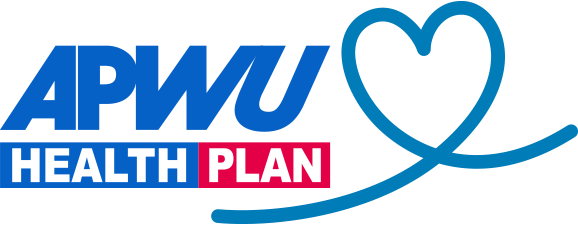No one expects you to eat a healthy diet 100 percent of the time, but ultra-processed foods like fried chicken, potato chips, and pastries can cause spikes in your blood-sugar levels and lead to weight gain and an increased risk of developing type 2 diabetes. While these foods appeal to our eyes and taste good, they offer little nutritional value. Incorporating more nutritious, wholesome foods into your meals can help you feel more energetic throughout the day and lower your risk for chronic diseases.
What is processed food?
Processed food is any food that has undergone changes to its natural state. Not all of these foods are bad for you, but eating large amounts of ultra-processed foods has been linked to serious diseases.
Mechanically processed foods, such as whole grain pasta, tofu, or frozen vegetables, are not unhealthy. However, foods that have been chemically processed with refined ingredients or artificial flavoring agents, colors, and sweeteners tend to contain less dietary fiber and fewer vitamins than whole foods.
The Academy of Nutrition and Dietetics describes five categories of processed foods:
- Minimally processed foods include cut fruits and vegetables, bagged salads, whole-grain breads, and roasted nuts. These foods can be part of a healthy diet. Pasteurized low-fat milk that has been fortified with vitamin D and calcium is another example of a healthy minimally processed food.
- Canned or frozen processed foods include beans, tuna, tomatoes, fruits, and vegetables. Canned fruit packed in water or 100% natural fruit juice can be a good option when fresh fruit isn’t available.
- Processed foods with additives include jarred pasta sauce, salad dressing, and yogurt, which may contain added oils and preservatives. Packaged foods also often contain unexpectedly high amounts of added sugars.
- Heavily processed foods include crackers, chips, deli meat, and granola. It’s okay to eat processed foods from time to time, but read Nutrition Facts labels and look for added sugars, fats, and salt (or sodium) in ingredient lists.
- Ultra-processed foods include pre-packaged meals, frozen pizza, french fries, and microwaveable dinners. While ultra-processed foods often taste good and are inexpensive, consuming excessive amounts of these foods can have negative health effects.
5 reasons why processed foods are bad for your health
- Ultra-processed foods tend to be high in added sugar. Consuming too much added sugar can cause you to overeat and is linked to obesity and type 2 diabetes. The Dietary Guidelines for Americans recommend getting less than 10 percent of total calories from added sugars.
- Ultra-processed foods are often high in refined carbohydrates. While carbohydrates are an essential part of a healthy diet, carbs from whole foods—including fruits and vegetables, whole grains, and beans and legumes—provide greater health benefits than those contained in processed foods.
Foods that contain simple, or refined, carbohydrates—like white bread and white pasta—have been stripped of fiber and other nutrients during the manufacturing process. In addition, the body breaks down simple carbs quickly, which can lead to rapid spikes in blood sugar and insulin levels, followed by rapid decreases. Frequent changes in blood sugar can leave you feeling sapped of energy.
- Ultra-processed foods are very low in essential nutrients. While manufacturers add synthetic vitamins and minerals to ready-to eat breakfast cereals and other processed foods, whole foods provide additional health benefits. For example, fruits and vegetables contain antioxidants, fiber, and other compounds that fight inflammation and help prevent cancer. The best way to get all the essential nutrients you need is to eat a variety of whole or minimally processed foods.
- Ultra-processed foods are very low in fiber. Dietary fiber has a wide range of health benefits. In addition to boosting heart health, fiber slows the absorption of carbohydrates so you feel satisfied for longer. Good sources of fiber include fruits and vegetables, legumes, nuts and seeds, and whole grains.
- Ultra-processed foods are often high in unhealthy trans fats. Manufacturers create artificial trans fat by adding hydrogen to liquid vegetable oils to make them more solid. Consuming trans fats can increase inflammation in the body and raise your risk of heart disease and type 2 diabetes. Although manufacturers have eliminated most trans fat from processed foods, if a product has less than 0.5 grams of trans fat, the Nutrition Facts label can claim it has zero grams.
Unhealthy foods you should avoid
Eating highly processed nutrient-depleted foods on a regular basis can raise your risk of developing diabetes, heart disease, cancer, and other serious health conditions. Foods you should cut back on include:
- Sugary drinks. Sweetened beverages are a significant source of added sugar. They are high in calories but low in nutrients and can lead to weight gain. If you crave something sweet, try adding a wedge of lemon or lime to sparkling water.
- Processed meats. While meats are processed to improve the flavor and extend shelf life, regularly consuming hot dogs, cold cuts, sausages, or bacon may raise your risk of developing colorectal cancer. Healthier sources of protein include roasted chicken, canned salmon, peanut butter, tofu, and egg salad.
- White bread. Packaged white bread made from refined wheat contains little to no fiber and few nutrients. Breads made from whole grains that contain dietary fiber promote gut health and help maintain your blood sugar levels.
- Sweetened breakfast cereals. Ready-to-eat cereals are usually low in fiber and contain a lot of added sugar. Choosing steel-cut oats or high-fiber cereals that are low in added sugar can promote better digestive health. In addition, consuming dietary fiber has been linked to a lower risk of type 2 diabetes, heart disease, high blood pressure, and cancer.
- Fried foods. Eating too much deep-fried food—including fried chicken, french fries, and fish sticks—can cause you to gain weight and raise your risk of developing type 2 diabetes, heart disease, and high blood pressure. Food that is baked, steamed, roasted, or boiled is often better for your health.
- Cookies and cakes. In addition to being high in sugar and low in fiber, heavily processed cookies, cakes, pastries, and donuts are often made with refined flour and excess fat. A high intake of ultra-processed foods can lead to weight gain and lower your HDL (good) cholesterol levels.
Set realistic healthy eating goals
When it comes to healthy eating, no one is perfect. It’s okay to order a burger and fries from time to time or treat yourself to an ice cream cone. However, processed food shouldn’t make up the bulk of your diet, particularly when it replaces more nutritious fruits and vegetables, whole grains, lean proteins, and low-fat dairy.
Additional sources
Mayo Clinic Health System, What you should know about processed foods
American Heart Association, Unhealthy foods







